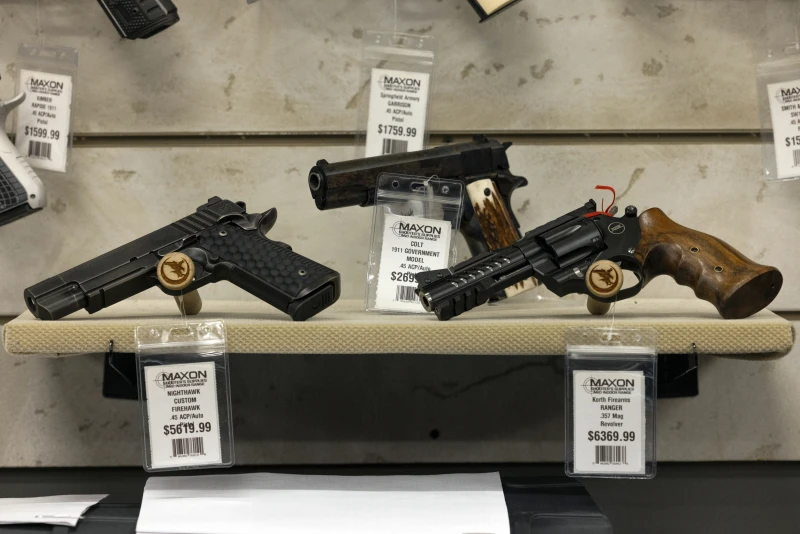Starting Monday, a California law will require credit card networks such as Visa and Mastercard to give banks special codes for gun stores to track their sales.
Conversely, Georgia, Iowa, Tennessee, and Wyoming are passing laws that do the opposite by prohibiting these specific codes for gun shop transactions.
These conflicting laws highlight a new debate in gun policy across state capitals, dividing lawmakers along party lines. Some Democrats and advocates for gun control believe the new tracking codes could help banks identify suspicious gun purchases, potentially preventing mass shootings and other crimes. Colorado and New York have followed California’s example.
“The merchant category code is the banking system’s first step in saying, ‘Enough! We won’t allow our system to facilitate gun crimes,'” explained Hudson Munoz, executive director of Guns Down America.

Maxon Shooter’s Supplies owner Dan Eldridge poses in his store (Via Hope Smith/Shutterstock)
However, many Republican lawmakers and supporters of gun rights are concerned that these codes could unfairly target law-abiding gun buyers. In response, 17 states with Republican-led legislatures have passed laws restricting or prohibiting the use of these tracking codes in the past 16 months.
“We see this as an initial move by gun control advocates to limit lawful firearm sales,” said Lawrence Keane, senior vice president of the National Shooting Sports Foundation, which supports laws blocking the use of tracking codes.
These new laws contribute to the broader national divide on gun policies. Recently, U.S. Surgeon General Vivek Murthy declared gun violence a public health crisis due to increasing firearm-related deaths, which exceeded 48,000 in 2022. This declaration drew swift criticism from the National Rifle Association.


























